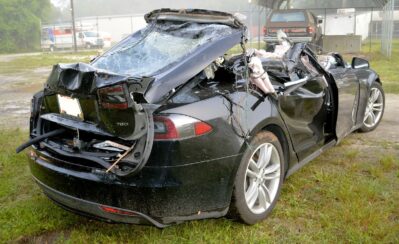New MMAC Leader Says, “We’re Going to Fight for the Whole Community”
What does Dale Kooyenga like about Milwaukee?
The question came from a member of the audience at a program at Marquette Law School’s Eckstein Hall on Tuesday (April 25, 2023). The questioner said she assumed that Kooyenga didn’t like Milwaukee because he was formerly a Republican member of the Wisconsin legislature who lives in the Milwaukee suburb of Brookfield. The way Republicans in the legislature have butted heads with Milwaukee leaders, generally Democrats, is a long-standing dynamic of Wisconsin politics.
But Kooyenga answered empathically that he shouldn’t be counted as part of that, not when looking at his past record and especially not when looking at his new role as senior vice president of the Milwaukee Metropolitan Association of Commerce. Kooyenga is expected to succeed the long-time president of the MMAC, Tim Sheehy.
For one thing, Kooyenga said, his state Senate district in recent years included some parts of the city of Milwaukee, and he was proud to represent the full district. For another thing, Kooyenga said, ask former Milwaukee Mayor Tom Barrett if Kooyenga was someone who Milwaukee leaders could talk to.
But, more broadly, Kooyenga had to pause before answering what he likes about Milwaukee because, as he put it, “it’s a long list.” Recreational opportunities, spectator sports, the ease of doing things, the life his family is able to live, the diverse people of the metropolitan area, and, simply, the friendly character of Milwaukee and Milwaukeeans. Kooyenga said he grew up in Chicago and came to the Milwaukee area initially to go to college. He assumed he’d move back to Chicago as soon as he could. But he quickly decided Milwaukee was a great place to live — and he hasn’t left.
Furthermore, he said, don’t peg him in his new role by his partisanship in the past. “We’re going to fight for the whole community. . . . That’s important to me,” he said. “The MMAC will do what’s in Milwaukee’s best interest.”
Kooyenga said that for years, the MMAC has based its programs on four goals for the Milwaukee area: livability, growth, talent, and equity. He said the organization will continue to pursue those goals.
He praised Milwaukee Mayor Cavalier Johnson and Milwaukee County Executive David Crowley for the effort they are putting into building relationships with state leaders in Madison, including Republican legislative leaders. Their work will pay “huge dividends,” he said. And allowing local sales taxes to support government in Milwaukee – an idea that Johnson, Crowley, the MMAC, and others are supporting — “has to happen.”
Kooyenga’s spoke at the first session of a new program of the Law School’s Lubar Center for Public Policy Research and Civic Education. Called “Get to Know,” the programs will be hosted by Derek Mosley, the new director of the Lubar Center, and are intended to provide a somewhat informal chance to meet interesting people involved in Milwaukee and the rest of Wisconsin.
The conversation with Kooyenga, Mosley, and members of the audience may be viewed by clicking below.

